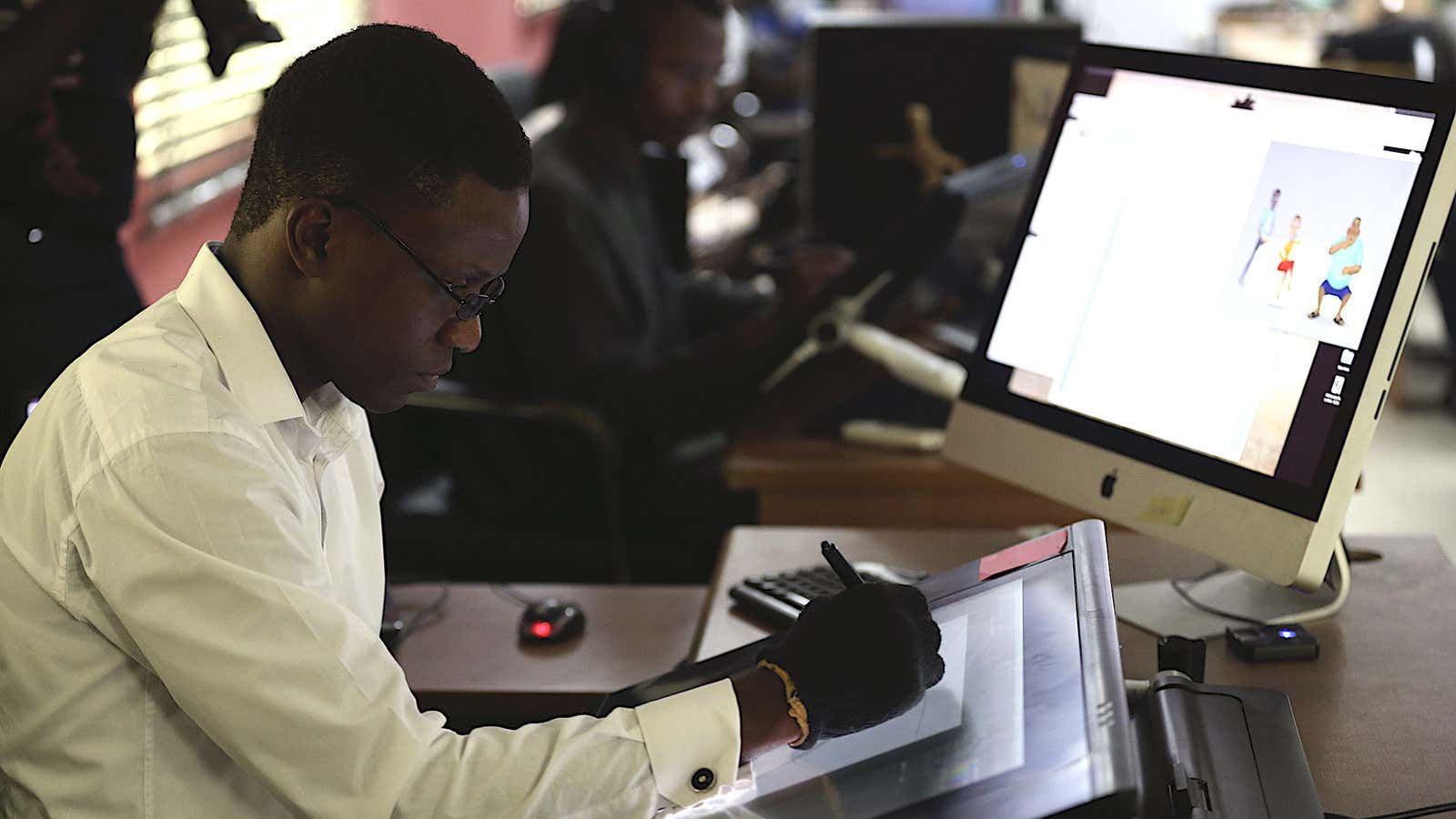Nigeria’s Ministry of Communications is getting a new name—it will now be known as the “Ministry of Communications and Digital Economy.”
The government says the change will “expand” the ministry’s mandate beyond telecommunications, its erstwhile primary focus. On paper, becoming more deliberate about tech-related policy can only be a good thing for a sector that’s already grown rapidly and was ranked Africa’s most valuable tech ecosystem two years ago. But in the meantime, amid uncertainty as to how the renamed ministry will function or what its policy focus will be, the move is being met with skepticism.
“If there is one thing successive governments are good at doing in Nigeria, it is applying lipstick to a pig. The real work goes beyond the name change,” says Idris Bello, tech entrepreneur and investor. As a sign of serious policy intent, Bello recommends following the path of Tunisia by enacting a Startup Act that “drills down into what is needed to deliberately create, stimulate, support and grow a digital economy beyond political statements and four-year election terms.” The ministry must also focus on rethinking education, says Femi Longe, co-founder of Co-Creation Hub, Nigeria’s leading tech hub. “We need to prepare talent for all aspects of the digital economy at scale, given our demographic make up and our growth rate,” Longe says. (Nigeria will become the world’s third most populated country by 2050). “There needs to be active collaboration with the Ministry of Education to overhaul our entire curriculum at all stages to make it compatible with the evolution of the digital economy…I’m talking problem solving, critical thinking, project management, collaboration,” he adds.
While revamping the educational curriculum is a necessary long-term move, a workaround to bridge existing skills gaps could also see the ministry partner with higher institutions “to develop accredited, flexible short programs to allow existing workers to start learning digital skills while having day jobs.” Bello says.
Easing barriers
Beyond education and a lack of skills, there are other barriers to accessing the digital economy. “The single biggest thing that can improve technology in Nigeria is dropping the cost of internet access,” says Mark Essien, founder of Hotels.ng, a hotel booking platform. “This can be done by licensing more local internet service providers (ISP) particularly to be able to use LTE broadband in small towns.” In fact, while mobile data prices have dropped over the years in Nigeria, the lack of reliable connections, still a major concern even in urban centers, hobbles internet-run businesses.
Yet, barriers do not only come in shape of infrastructural deficits. Nigerian technology workers consistently face harassment by police officers who accuse them of being online fraudsters—a crude, long-running extortion tactic that’s forced industry leaders to crowdfund a legal campaign. Continued harassment may force talent to find ways to “get out of the country at all costs” and worsen an existing talent shortage in the industry Longe says.
For some however, increased government focus could actually be a bad thing, resulting in problematic regulation or, at worst, opening up avenues for rent-seeking from a nascent industry. “We all know that every time government mentions the word “economy,” it’s about how much the government can make out of an industry,” says Oluyomi Ojo, founder of Printivo, a online printing company.
It’s a theory that will resonate with local bike-hailing startups in Lagos: after a period of strong growth and winning over customers and investors, they now face the prospect of paying a minimum of $70,000 in licensing fees to operate in Nigeria’s economic capital.
Sign up to the Quartz Africa Weekly Brief here for news and analysis on African business, tech and innovation in your inbox
